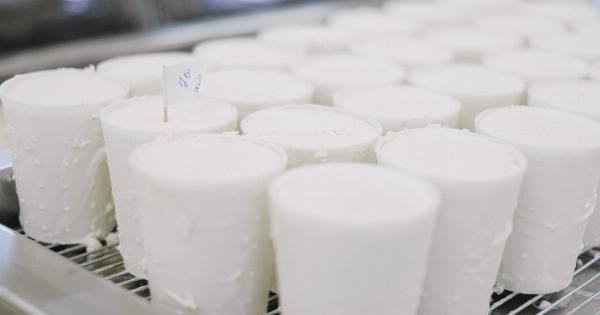When it comes to breastfeeding, proper nutrition is essential for both the mother and the baby. As a nursing mother, you need to consume an adequate amount of nutrients to ensure both the quantity and quality of breast milk.
In this article, we will discuss the best foods to include in your breastfeeding diet to support your and your baby’s health.
1. Protein-Rich Foods
Protein is crucial during breastfeeding as it helps in the growth and development of the baby. Include lean sources of protein in your diet such as poultry, fish, lean meats, eggs, legumes, and dairy products.
These foods not only provide protein but also supply essential vitamins and minerals.
2. Whole Grains
Whole grains such as brown rice, whole wheat bread, oats, and quinoa are excellent sources of energy and fiber. They also contain essential B vitamins that assist in the proper functioning of the nervous system.
Including whole grains in your meals will keep you satiated for longer periods and aid in a healthy digestive system.
3. Healthy Fats
Healthy fats are vital for the development of the baby’s brain and nervous system. Incorporate foods rich in omega-3 fatty acids such as salmon, sardines, chia seeds, flaxseeds, and walnuts in your diet.
Avocado, olive oil, and nuts also provide healthy fats and improve the absorption of fat-soluble vitamins.
4. Colourful Fruits and Vegetables
Fruits and vegetables are essential sources of various vitamins, minerals, and antioxidants. Aim for a variety of colorful fruits and vegetables, including berries, citrus fruits, leafy greens, broccoli, carrots, and sweet potatoes.
These fruits and vegetables will provide you and your baby with a range of nutrients required for overall health.
5. Calcium-Rich Foods
Calcium is crucial for the development of your baby’s bones and teeth. Include dairy products like milk, cheese, and yogurt in your diet.
If you are lactose intolerant or follow a vegan lifestyle, consider calcium-fortified plant-based milks, tofu, and dark leafy greens like kale and spinach.
6. Iron-Rich Foods
Iron is important during breastfeeding to replenish the blood loss that occurs after childbirth and ensure optimal baby growth. Include iron-rich foods such as lean meats, poultry, fish, legumes, tofu, spinach, and fortified cereals in your diet.
Pairing these foods with vitamin C sources like citrus fruits enhances iron absorption.
7. Hydration
Staying hydrated is crucial while breastfeeding as it helps maintain an adequate milk supply. Drink plenty of fluids, especially water, throughout the day.
Limit your intake of sugary beverages and caffeine as they can potentially pass into breast milk and affect your baby’s sleep patterns.
8. Foods to Avoid
While breastfeeding, it’s important to avoid certain foods that may cause discomfort or allergic reactions in babies. Common allergenic foods include cow’s milk, nuts, soy, eggs, and fish.
Keep a close eye on your baby’s reactions after feeding and consult a healthcare professional if you suspect any adverse effects.
9. Small, Frequent Meals
Eating smaller, more frequent meals can help maintain your energy levels and ensure constant nutrient supply for both you and your baby.
It can also assist in managing common digestive issues that may arise during breastfeeding, such as indigestion and acid reflux.
10. Include Lactation-Supporting foods
Several foods are believed to promote and increase milk production. These lactation-supporting foods include oats, fenugreek, fennel seeds, brewer’s yeast, and blessed thistle.
Incorporating these foods into your diet can potentially enhance your milk supply, but it’s important to note that individual results may vary.





























